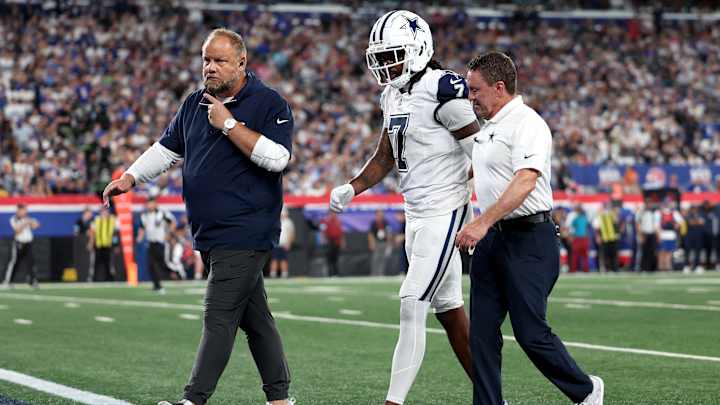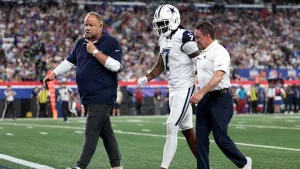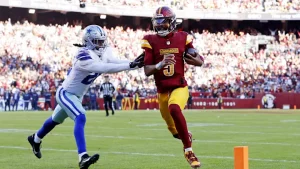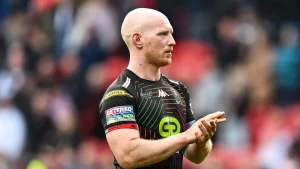
BREAKING NEWS:The Amazon broadcast looked classless showing Trevon Diggs’ son after Cowboys CB injury…

The recent Amazon broadcast of the NFL game took a turn that many viewers found unsettling, particularly during the moment when Trevon Diggs, the Dallas Cowboys cornerback, suffered a serious injury. The camera panned to his son, who was visibly emotional in the stands. While the intention may have been to humanize the situation and showcase the familial bonds in professional sports, the execution felt classless and intrusive.
In the world of sports broadcasting, there’s a fine line between storytelling and sensationalism. The injury to Diggs was significant, not just for the Cowboys but for the league as a whole. His absence could impact team dynamics, playoff aspirations, and fan engagement. In these moments, audiences often look for a deeper narrative, one that connects the athlete’s struggle with their personal life. However, capturing a child’s reaction to their parent’s misfortune crosses an ethical boundary.
Broadcasting networks have a responsibility to handle such sensitive moments with care and respect. Diggs’ son, caught in a whirlwind of emotions, represented not just a child witnessing his father’s pain but also the vulnerability that comes with being a family member of a professional athlete. The decision to focus the camera on him seemed to prioritize viewer ratings and drama over compassion and respect for the family’s privacy.
Critics argue that this type of coverage detracts from the game’s integrity and exploits personal moments for entertainment. The injury itself was distressing enough without the added layer of public scrutiny on an innocent child. It raises broader questions about the morality of sports journalism and broadcasting: how far is too far when it comes to capturing human emotion in sports?
Moreover, the portrayal of families in sports often revolves around strength and resilience, but it can quickly devolve into a spectacle when producers choose to showcase emotional breakdowns. The son of an athlete should not have to bear the burden of public observation during such a trying time. The choice to display his reaction felt like a violation of privacy, reducing a deeply personal experience to mere content for a wider audience.
In a media landscape increasingly aware of issues surrounding mental health and personal boundaries, this incident stands out as a stark reminder of how quickly we can slip back into exploitative tendencies. Viewers are not merely passive consumers; they have opinions, and many voiced their disapproval on social media, emphasizing the need for more respectful coverage of athletes and their families.
Ultimately, the incident should serve as a wake-up call for broadcasters. Viewers crave authenticity, but they also want empathy. As the lines between personal lives and public personas blur, there’s an urgent need for networks to rethink their strategies and prioritize dignity over drama. Trevon Diggs’ injury was a tragic moment; how it was portrayed should prompt a broader conversation about ethics in sports broadcasting and the treatment of athletes and their families in times of crisis.







